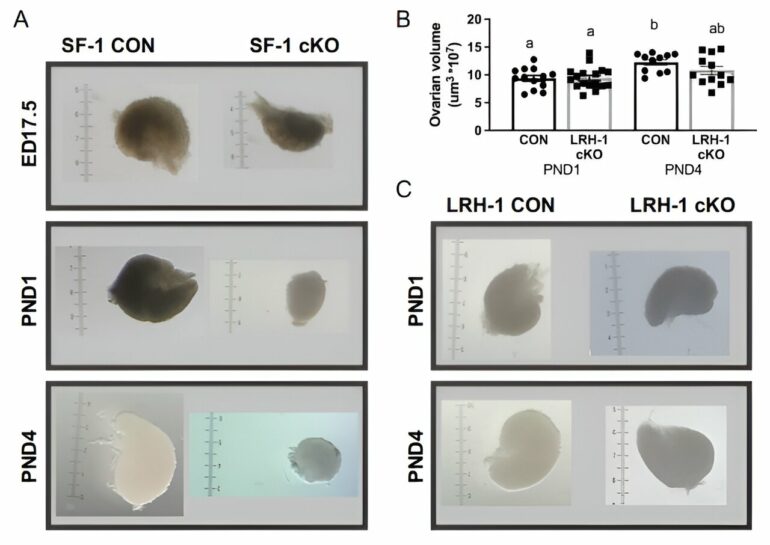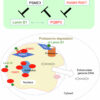Epidemiological studies have shown that infertility affects 12% to 15% of couples of reproductive age in developed countries, and at least 25% in underdeveloped ones—overall, 186 million people worldwide. In about 40% of cases, infertility has been attributed to ovarian dysfunction, making this a major issue for women’s health.
In mammals, it’s generally agreed that females have only a limited number of oocytes before they conceive; this is known as their primordial follicle pool, or ovarian reserve. The follicles are somehow selected, then progressively and irreversibly activated. Depletion of the reserve due to aging or to disorders in the ovaries results in infertility, and this in turn leads to menopause in women.
To study the formation of the ovarian reserve, scientists at the Research Center in Reproduction and Fertility of Université de Montréal’s Faculty of Veterinary Medicine used a genetically modified mouse model in which a key nuclear receptor, steroidogenic factor 1 (SF-1), was depleted in prenatal ovaries.
This resulted in a dramatic reduction in the number of follicles in the ovarian reserve. In the mouse model, more oocytes died due to increased ovarian inflammation and other mechanisms. The loss of SF-1 resulted in premature aging-related infertility in the mouse, as well.
An essential regulator
Led by veterinary biomedical professor Bruce D. Murphy, the researchers conclude that SF-1 is an essential regulator of primordial follicle assembly and consequently, the formation of the ovarian reserve. Their results are published in Proceedings of the National Academy of Sciences.
“As genetic studies have shown that SF-1 is expressed at the time of human ovarian reserve formation, this work is significant to understanding premature ovarian infertility and menopause in women,” Murphy said.
“It suggests to us that, to address these issues of infertility, SF-1 could serve as a potential target for therapeutic interventions. It would make it much easier for physicians to hone in on what is making their patient infertile, and to reverse it.”
More information:
Camilla H. K. Hughes et al, Steroidogenic factor 1 (SF-1; Nr5a1 ) regulates the formation of the ovarian reserve, Proceedings of the National Academy of Sciences (2023). DOI: 10.1073/pnas.2220849120
Provided by
University of Montreal
Citation:
Veterinary scientists find decrease in protein may contribute to infertility in women (2023, August 3)



